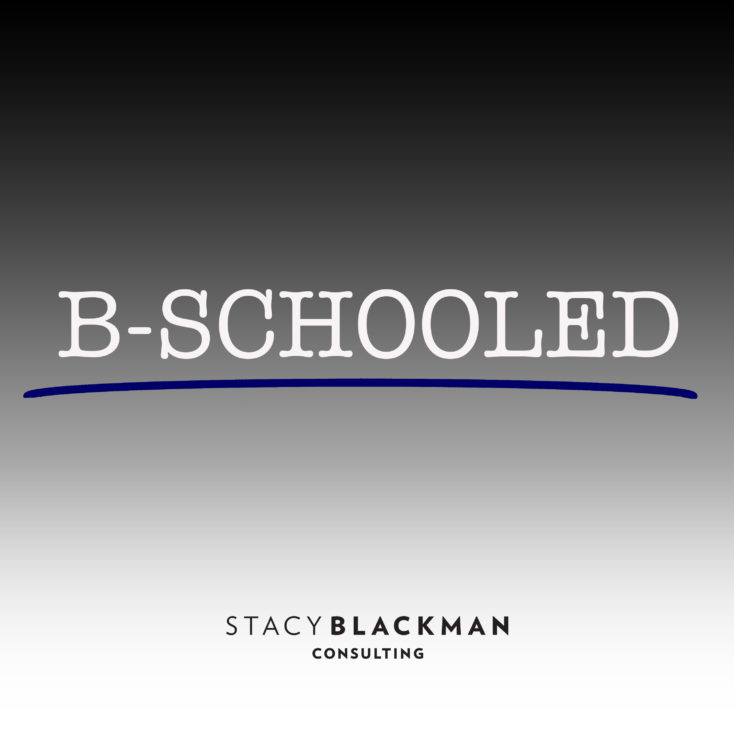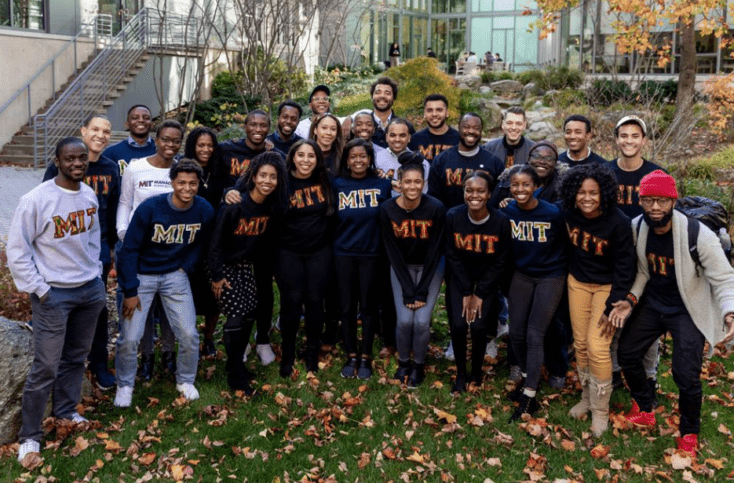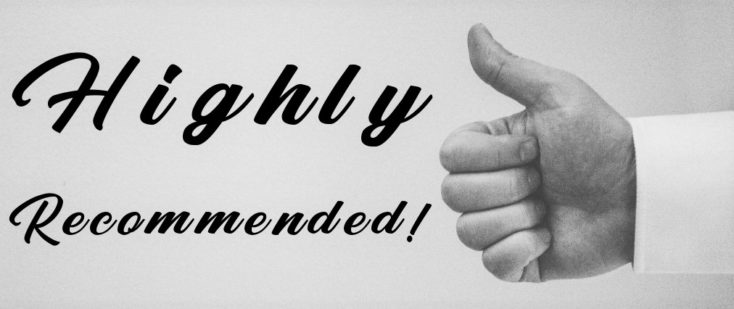Forum Home > GMAT > Quantitative > Problem Solving (PS)
Events & Promotions
| Last visit was: 06 Oct 2024, 00:54 |
It is currently 06 Oct 2024, 00:54 |

Customized
for You
Track
Your Progress
Practice
Pays
09:00 AM PDT
-12:00 PM PDT
11:00 AM CDT
-05:00 PM EDT
09:00 AM PDT
-09:45 AM PDT
03:00 PM EDT
-04:00 PM EDT
10:00 AM EDT
-12:00 PM EDT
08:00 PM PDT
-09:00 PM PDT
08:30 AM PDT
-09:15 AM PDT
| FROM Stacy Blackman Consulting Blog: The Downside of Tech and Virtual Work |
Have you ever considered what living through the pandemic might have been like if it had happened 20 years earlier? We shudder at the thought. “FRESH IDEAS FROM THE BLACKLIGHT” SBC’s Weekly Newsletter for Professionals Most of us have weathered the Covid era thanks to having decent internet speed and the digital tools needed to do our jobs. But while working from home provides plenty of perks, there is some trouble in paradise regarding tech and virtual work. This piece in MIT Sloan Management Review explores some surprising downsides to our tech-dominated work life. Collaboration tools—think Zoom, Microsoft Office, Slack, etc.—create four potential risks we need to watch out for, say researchers from the University of Reading’s Henley Business School. According to lecturers Lebene Soga and Yemisi Bolade-Ogunfodun, “As this new gold rush for collaborative technologies increases, organizations risk developing a blind spot to the impact they have on relational dynamics between managers and employees.” Problem: Risk of isolation. Good as it is, video conferencing can’t quite replace the “watercooler moments” and social camaraderie of the Before Times. Technology can widen the gap between managers and employees as opportunities for spontaneous face-to-face interactions disappear, the researchers explain. “Leadership runs the risk of becoming tele-leadership if the isolation is not addressed,” Soga and Bolade-Ogunfodun warn. Solution: Obvi, technology is excellent for accomplishing work-related goals. But in virtual work arrangements, we should also use it to stay connected as people. Supervisors can counter the effects of isolation by fostering a sense of belonging.  Increasing one-on-one interactions with remote team members is an easy way to make a meaningful difference. For example, Bolade-Ogunfodun and Soga suggest managers and employees meet for weekly virtual lunches to maintain connections. Problem: Risk of exclusion. In today’s workplaces, employees range from tech natives to late adopters. Generational differences are inevitable. Some people feel instantly at ease with the many platforms we now rely on. Meanwhile, others are googling how-to videos to save face. “Just as in-person work has the ability to create different social dynamics and structures (…) technology also has the ability to (re)shape ‘in-groups’ and ‘out-groups’ — and in some cases, more easily,” Bolade-Ogunfodun and Soga have found.  Solution: If you suspect a team member’s lack of participation stems from not being tech-savvy, there’s a simple solution. “You could provide specific training opportunities to address knowledge gaps,” the researchers suggest. But be sure to do so “without making assumptions about adeptness because of an employee demographic.” Studies show some people over 40 do know a thing or two about technology. Problem: Risk of surveillance. The feeling that Big Brother is watching your every move, even when you’re working from home, is commonplace—and unsettling. After all, collaborative tech generates information about employees that management can later use in organizational decision-making, the researchers note. You may (rightly) fear that managers judge your productivity and make unfair assumptions based on your data usage trail. “Negative perceptions of managerial surveillance reduce employees’ sense of personal control,” Bolade-Ogunfodun and Soga note. Consequently, trust in the manager-employee relationship gets impacted.  Solution: When it comes to tech and virtual work, these researchers believe the first step to address surveillance fears is to lead with transparency. Tell employees what kind of data the technologies used generate, how the company uses that data, as well as the company’s policies about personal data. Soga and Bolade-Ogunfodun think “managers should consider giving employees some administrator rights to the privacy settings of the collaborative technologies.” Finally, the researchers say companies would boost employee confidence if they anonymized the data generated. Problem: Risk of self-censorship. Zoom meetings are notorious for creating an environment that breeds self-censorship. The most extroverted or highest-ranking team members dominate virtual discussions, leaving quieter types literally muted in their wake. “We found that collaborative technologies do not necessarily translate into a free flow of information,” say Soga and Bolade-Ogunfodun. Instead, they create conditions for self-censorship—even with so-called user-friendly technology. By holding back, individuals in a technologized relationship may widen the manager-employee distance. Solution: Leaders should regularly ask for feedback from participants. They can learn whether employees have run into any issues that prevent them from contributing during meetings.  Be mindful of how you ask for feedback, though. Allow for private or anonymous ways to share thoughts to avoid putting employees on the spot. The Future of Tech and Virtual Work Experts cited by the Pew Research Center predicted that the new normal in 2025 will be far more tech-driven. In fact, “among the 86% who said the pandemic will bring about some kind of change, most said they expect that the evolution of digital life will continue to feature both positives and negatives.” If so, it falls on everyone to stay vigilant about the potential risks of tech and virtual work going forward. Huzzah! You made it to the end of the post! This tip sheet on how to manage tech and virtual work appeared initially on the Blacklight, our weekly newsletter for professionals. At the Blacklight, we aim to illuminate with every dispatch that lands in your inbox. If you’re thirsty for guidance to help you slay it at work or as a student and move your goalposts closer, sign up today! The post The Downside of Tech and Virtual Work appeared first on Stacy Blackman Consulting - MBA Admissions Consulting. |
| FROM Stacy Blackman Consulting Blog: MBB Consulting: Salaries, Trends, Myths & the MBA |
Here, we take a 360 degree view of what the management consulting career path looks like inclusive of success factors and hot button topics, with the expert guidance of Davis Nguyen, CEO of My Consulting Offer, a team of former McKinsey, Bain, and BCG recruiters and consultants who work with aspiring consultants to land interviews and win offers. We also cull advice from the former MBA Admissions Officers on the Stacy Blackman Consulting (SBC) team on how applicants from the consulting career path can differentiate themselves from the traditional pool they are competing within, as well as how applicants who have pre or post-MBA consulting careers can best position themselves, especially as they aspire to the elite business schools of Harvard, Stanford and Wharton. A former HBS Admissions Officer on our SBC team shared, “Consultants are the bread and butter of Harvard’s MBA program, and there is an assumption that this is THE desired profile; the reality is that this subset of the population is heavily oversubscribed. If you come from a consulting background, you must be able to demonstrate your unique leadership abilities and that you are progressing at a pace ahead of your peers. You should have something that uniquely defines you in addition to having outstanding academic stats.” We explore this and other best practices, including sample MBA admit essay excerpts, later in this overview. If you’d like feedback on your MBA profile and recommendations for target business programs through a free candidacy analysis, please request a 15 minute email or phone consultation. Speaking of outstanding, MBB is the acronym that many young professionals use to describe the upper echelon of management consulting: McKinsey, Bain, & BCG. Davis’s team at My Consulting Offer just released its 2022 reportthat sheds light on the high-paying advantages at these highly-coveted employers: [img]https://www.stacyblackman.com/wp-content/uploads/Screen-Shot-2022-02-01-at-1.30.38-PM.png[/img] MBB Consulting Salaries Now that we have your attention (money talks!), let’s explore further. What is the consulting career path? In an e-interview with Stacy Blackman Consulting, Davis Nguyen of My Consulting Offer shares insights to probing questions here. Q- Are MBB consulting employers still the most coveted across consulting or have any lost their luster? A- The short answer is yes. About 76% of the clients we work with when we start their planning and ask, “what is your dream firm” answered McKinsey, Bain, or BCG. The longer answer is that MBB’s preference among candidates is lower than before since (1) other firms have started emerging with specialties and (2) candidates more now than before are interested in these specialties. For example, we have had clients who get multiple offers including at least one of MBB and decline it for another firm. For example, we had a client who put “McKinsey” as her dream firm and came from a social impact background so when she discovered and got an offer from Dalberg, which is a top social impact consulting firm, she opted to sign with Dalberg. We see this happen many times each month, another example, recently we had an MBA who declined her BCG offer to join a life science consulting firm because she came from a life science background and wanted to continue on that path post-consulting and the exit opportunities at the firm she chose were more aligned with her longer-term goals. Q- Do MBB consulting employers find it harder to recruit talent with FAANG / tech becoming so dominant? A- While this is true, since we hear this from the firms we keep in touch with that FAANG/ tech companies and even startups are competing more and more for similar candidates and even our own clients debate between signing their consulting or their tech offer, firms are still seeing higher numbers of applications coming in. For example, last year McKinsey saw over 1 million applications coming in which was an all-time high. Bain, BCG, and other firms also saw an increase in the number of applicants. Q- What are the top non-MBB employers for consulting? A- This will depend on what you are optimizing for such as, for example, the top healthcare consulting firm or the firm with the best training that has an office in a certain city. We have a list here of top non-MBB firms. Q-What are the top boutique or industry-specific consulting firms? A- This listcan also be sorted by specialty . Q- About how many applicants apply for a given position/ what is the passing rate for top, MBB, firms? A- This will vary depending on firm, city, and title. The pass rate will vary as well depending on multiple factors but taken as a whole, last year MBB took about 4% of applicants. Q-What firm is known for the hardest work/life balance? A- This will vary depending on the team more than the firm since your team and the team project drives the project scope. But as a whole, McKinsey consultants tend to log in more hours than others, holding all else equal, but McKinsey also has one of the best leave of absence programs so it really depends on the team/project and less on the firm. Q-What firm is known for the best work/ life balance? A-Same as above, it comes down to the team and project more than the firm. But if you are looking for a strategy consulting role that has better than average hours compared to other firms, internal consulting fits this well from internal consulting teams for the firms themselves such as Bain’s internal consulting team to corporate consulting teams such as CapitalOne’s. Cultural and value differences have been recently covered by PoetsandQuants and are also explained in the chart below. [img]https://www.stacyblackman.com/wp-content/uploads/Screen-Shot-2022-02-01-at-1.31.52-PM.png[/img] Q-What are examples of front-office, coveted titles for consulting? A- Job titles will vary from firm to firm, but levels are – Pre-MBA level Consultant (called Associates, Business Analyst, Associate Consultants, and Analysts), post-MBA level consultant [note you don’t need an MBA to be in this role] such as [Associate, Consultant], Manager (Engagement Manager, Project Leader, Manager, Case Team Leader), Principal (sometimes called Senior Manager or Associate Partner), and Partner/Director Q-What are examples of mid-office (less coveted, lesser paid) titles in consulting? A-If being client-facing is less of an interest, firms also have teams that specialize in for example data (such as BCG GAMMA) and digital work (such as Bain Innovation Exchange) Q- What changes have there been recently or on the horizon among the top consulting firms with respect to who they hire or what they look for? Five trends to note
A-It varies depending on personal goals and even firm, but some common ones include
McKinsey Boston Consulting Group Bain & Company Deloitte Starting title post-MBA Associate Consultant Consultant Senior Consultant Academic prerequisites No hard cut offs for scores or prerequisites Professional prerequisites No “must-have” since consultants can be hired as generalists; for those coming for post-MBA roles, it is assumed that they will have at least 1-2 years of working experience prior to joining the firm (but this already mostly filtered by the business school with programs such as 2+2 or Silver Scholars) Sponsorship for the MBA Yes (must have been a Business Analyst before at McKinsey) and commit 2 years after to return post-MBA to McKinsey Yes (must have been an Associate before at BCG) and commit 2 years after to return post-MBA to BCG Yes (must have been an Associate Consultant before at Bain) and commit 2 years after to return post-MBA to Bain (reneging or failure to stay for full commitment results in interest penalty) Yes – GSAP, Graduate School Assistance Program, at least 2 year tenure requirement before being eligible, but must leave before Manager. Requires sponsorship by at least 2 partners and approval by a panel. Must return as Sr Consultant for at least 1 year to get 50% of the MBA fees reimbursed and 2 years for 100% Stereotypes As a firm, McKinsey has earned the nickname “The CEO Factory,” because of the sheer number of ex-McKinsey CEOs found in Fortune 500 companies.* Imagine BCG as the middle child – the nerdy one. You can think of BCG as the brother who carries a pocket protector in his pocket, with rimmed glasses, who probably went to MIT and came up with a groundbreaking thesis that has changed the world.** People often think of Bain as the little sibling, who is very eager to prove themselves to the rest of the family. Because they’re the smallest and Bain typically has the least resources, they have to get very creative in their approach.*** The onlinecommentary can reference Deloitte, which can be included when referencing MBBD, as the 4th sibling. * Some prominent examples of this would be Sundar Pichai, CEO of Alphabet/Google, Vittorio Colao CEO of Vodafone, and James Gorman, CEO of Morgan Stanley. Just to name a few. McKinsey is also the first of the big three and was founded before the others and has the largest global footprint of the Big 3. So if you imagine McKinsey, BCG and Bain as three siblings; McKinsey would be the oldest brother who might dress a bit uptight sometimes, is older and has the most work experience and thus and is convinced he is always right because of said experience **Quick back story on how BCG started. If you look at McKinsey, they essentially believe that best practices can be applied across companies and across industries, and that one should not constantly reinvent the wheel, hence the reason behind their global staffing model. BCG disagreed with this approach however. Instead, they exclaimed “not every situation is the same. We should take a very academic and rigorous approach to this.” In fact, you might have heard of terms such as a two by two matrix for growth, Porter’s Five Forces, and so forth. These are all theories spearheaded by BCG. The idea with BCG is that their goal when they go in and work with a client is they want to be able to make every engagement, every case, every project unique and different from the last, because of the specific unique context and situation faced by said client. *** They are also the “youngest” because they have historically recruited more positions at the undergraduate/master’s level so unlikely BCG and McKinsey which have a “diamond” shaped level (the fattest part being the post-MBA role); Bain is a pyramid shaped where the base (entry level) is the largest part of their consulting staff. Thus you can imagine that more events tend to be geared towards and put together by those in their early 20s than at McKinsey and BCG. Tips for applicants who have consulting in pre or post-MBA plan Q-Is consulting a common career path for MBA students to pursue? A-Yes. Industry outplacement data for MBA graduates, gleaned from the MBA career reports, is outlined here: Consulting Industry Finance Industry Harvard 24% 34% Stanford 15% 34% Wharton 24% 36% Kellogg 36% 15% Columbia 34% 33% Chicago 38% 30% MIT Sloan 31% 18% Haas 25% 14% Duke 31% 18% Darden 41% 19% Q- How can I stand out? A- The former Stanford Admissions Officers on our SBC team advise, “The GSB is looking for best performers or an interesting twist. Having pursued a paradigm-shift effort at work or otherwise is often helpful. Highlight differences such as special talents, experience, adversity, to separate from the pack.” Similarly, the former Wharton Admissions Officer on our team recommends, “Demonstrate strong interpersonal skills in the Team Based Discussion interview as a vital way to stand out from the traditional applicant pool.” As well, firm sponsorship, any feeder firm leverage, and identity-driven passions shown through externship or secondment are valuable in the MBA admissions process. Above all, make sure you are an interesting person outside of work – what makes you unique? Q- What skills or attributes do consultants have that MBA programs appreciate and what is disliked? A- Problem-solving, analytical, competitive, deep intellectual and critical thinking. Any air of entitlement is discouraged. If you’d like feedback on your MBA profile and recommendations for target business programs through a free candidacy analysis, please request a 15 minute email or phone consultation. Q- Can you share sample essay excerpts from successful MBA applicants? A- Yes: “To prepare myself to tackle social problems, my short-term goal is to work on strategic issues for companies across multiple industries in management consulting, for a firm such as Booz & Co. in its Strategy and Leadership practice. I see management consulting as a boot camp in problem-solving which will help me face the challenges of running a social venture.” “In order to succeed as a venture capitalist, in the short-term I plan to complete an MBA from Kellogg and work as a management consultant for a strategy firm specializing in technology companies. This consulting experience will broaden my exposure to multiple disciplines of growth strategy, business operations, finance and resource management. I believe that a successful technology company is born out of a complex interplay between a deep understanding of technical knowledge and creative insight of an entrepreneur.” “My long-term career goal is to give back to the small business community by building on my Columbia education and short-term post MBA goals – tackling business problems in management consulting. My current experience as an entrepreneur has allowed me to experience several different aspects of business, including marketing, accounting, management, etc. which I believe will help me contribute to the Columbia classroom and my goals. These goals are my passions and I hope to achieve them within 10 to 15 years.” “Those who know me will also tell you that my career goal is to follow this passion, becoming a Management Consultant for a company like Bain in its Travel, Hospitality & Leisure practice. After gaining the skillset necessary at a larger firm, I plan to transition to a smaller, niche consulting firm in the industry, eventually achieving the rank of Partner. There, I will lead the practice to ultimately help our clients offer rewarding travel experiences.” If you’d like feedback on your MBA profile and recommendations for target business programs through a free candidacy analysis, please request a 15 minute email or phone consultation. What do current MBA students ask about the consulting career path? Again, we turn to Davis Nguyen for his insights on the top questions that current MBA students ask about the management consulting career path. Q-Is it easier to get an offer during Year 1 or Year 2? A-Firms are emphasizing more and more on filling their hiring goals through 1st year recruiting and building their internship class. This doesn’t mean that you can’t get a full-time offer in Year 2 because you didn’t recruit in Year 1 or you didn’t get an offer in Year 1 since many people still do, including our clients, but this does mean that if you are considering consulting, I would recommend applying in Year 1 as well to increase your odds and at the least gain the experience of consulting recruiting which is different from other types of recruiting. Q-What are common misconceptions that MBAs have about being able to get a consulting offer? A-There are a lot of common myths that we see people “pre-rejecting” themselves with that aren’t true. Five of the common ones are
A- No. Being rejected before does not mean will be automatically rejected again. Firms actually like it when you have a sustained interest in consulting and in between your applications show the progress you have made. We have had numerous clients who before joining their MBA had been rejected a year or even a few months earlier and was able to get an offer when they applied as an MBA student. Q- Does the city preference I list on my application affect my chances? A-Yes. The city you list will affect your chances of being interviewed and given an offer. There are many factors that go into play here. Q- If I don’t attend a target MBA school such as HBS, Wharton, Kellogg, does it mean I can’t get an offer? A-While it was true before that firms had their “core list” of business schools and if you didn’t go to that school or were doing a non-traditional MBA that you wouldn’t be even considered, those days are over especially as hiring becomes less globally centralized and more regionally focused so local offices are able to consider which schools they want to recruit from. So we have clients who didn’t attend a T15 or were on a part-time MBA get offers from McKinsey and other amazing consulting firms. There is more to the recruiting process than the business school you attended such as reaching out to the right people and demonstrating the right traits on your application. This overview has been prepared from the generous insights of My Consulting Offer, which is to aspiring consultants what Stacy Blackman Consulting is for aspiring MBAs. My Consulting Offer is a team of former McKinsey, Bain, and BCG recruiters and consultants who work with you one-on-one, step-by-step to land you interviews and help you pass your interviews. To date, 85% of the clients they work with have become management consultants at McKinsey, Bain, BCG, and other top firms. Clients have called them, “the closest thing to a guaranteed consulting offer.” If you are interested in consulting and want a proven, stress-free, step-by-step process for getting a consulting offer, check out how My Consulting Offer can help you. If you’d like feedback on your MBA profile and recommendations for target business programs through a free candidacy analysis from a Principal at Stacy Blackman Consulting, please request a 15 minute email or phone consultation. The post MBB Consulting: Salaries, Trends, Myths & the MBA appeared first on Stacy Blackman Consulting - MBA Admissions Consulting. |
| FROM Stacy Blackman Consulting Blog: The 411 on Deferred MBA Admissions |
 Are you a college senior who is thinking about attending a top business school in the future? Then today’s post is for you! A growing number of business schools have created programs that target younger applicants through deferred MBA admissions. Read on to learn more about this exciting alternative route to b-school.
Deferred programs are for college students who haven’t held a full-time job upon application submission. The most common model for deferred MBA admissions programs is to apply as a college senior (undergrad or grad), gain an admit, and then work for two to four years before starting the program. Throughout the deferral period, MBA program admits can access valuable networks and engage career resources within the university. Without a doubt, the most coveted deferred MBA admissions program for SBC clients is the HBS 2+2 Program. With this model, successful admits work for two years upon college graduation, and then attend HBS for two years–hence the program name, “2+2.” Note that HBS can approve a third year of deferral if the candidate is working on something reasonable—not laying on a beach in Bali!  What do deferred MBA programs look for in applicants? Our SBC team includes many deferred MBA program experts. In fact, it includes the former HBS Associate Director of MBA Admissions who helped launch the 2+2 Program. “The main impetus for starting HBS 2+2 was to attract students who would never apply to b-school,” she explains. “They are looking for all the same qualities and credentials as they do for the regular pool. But, then they are also looking for scientists, engineers, techies, and entrepreneurs, to name a few. HBS really hoped they would find young people who saw the deferred admission as an opportunity to take a risk and do something a little bit off the beaten path.” Successful deferred admissions applications require a compelling and differentiated story. Our successful college senior applicants are those who have shown leadership and made a noteworthy impact in some way. Also, they are often outside of the typical or traditional MBA candidate profile. For example, we worked with an HBS 2+2 applicant who graduated college early to take an internship working on the heroin epidemic in Washington D.C. In addition, deferred MBA admissions admits usually have clear career plans and already know how a business education will aid their aspirations. They don’t need to be 100% married to a job or industry, of course. But they do understand what community they want to serve or problems they want to tackle in the short term. Deferred admissions admits think of the MBA program as a way to build and test hypotheses and access vital networks to move them forward along an already-defined path. A solid framework on where the MBA falls along with the master plan is important for success as a deferred admissions candidate. But it’s not a program for everyone. On the other hand, there are some for whom deferred admissions may not be the right plan. MBA applicants who have a tougher time with admit success at the college senior level are the “explorers,” or those who still want to try different things, such as taking a few years at a broad-based employment path, to assess if the MBA is right. How we approach deferred MBA admissions Throughout the application, we need to demonstrate to the MBA admissions committee why they should accept this candidate two to five years ahead of the regular applicant pool. HBS 2+2 typically has only 100 admits available, with about 60 male and 40 female spots. Although, keep in mind that AdCom adjusts the odds further according to industry plan or career path. Career goal positioning within the application is an important success factor for our college senior clients, who will become the next generation of future global leaders. The bar is higher for the deferred MBA admissions programs, and we work relentlessly with our clients to reach that threshold. Why our clients apply via deferred MBA admissions Our college senior admits tell us that they have great job opportunities in the two years leading up to their MBA program because of their early MBA admission. An admit to a top deferred admissions program also allows the young professional to pursue a different level of risk in the job market since the MBA admit is already locked down.  One can take unconventional career choices—such as opting to work at a start-up over consulting because of the desire for growth, excitement, and impact. As one successful client for Stanford’s deferred MBA admissions program shared: “The great thing about deferred MBA programs is that you get access to an amazing network of the most interesting, smart people you’ll ever meet years before you even start your MBA. So, connecting with these people early on has enabled me to jump start that self-reflection process by learning from others. That’s a huge benefit of the deferred programs that I think isn’t talked about enough.” A deferred admissions admit enjoys being part of the MBA community for more years than a traditional MBA admit. These individuals have about four years from admission to graduation to explore the business school experience in depth. MBA programs often offer check-ins with deferred admissions admits such as in November of each year. At that time, the admit can let the MBA program know when he or she expects to matriculate. Plus, they have the same access to scholarship opportunities because of this check-in process. Hear from our successful deferred MBA admissions clients. A recent HBS 2+2 admit and a client of SBC wrote in to say: “Being a 2+2 admit means you are a part of the larger 2+2 community, which includes both current admits (for multiple years, since admits can defer for 2-4 years) and past 2+2 alumni. One of the first admit events HBS hosted was a panel with previous 2+2 students, and we had the opportunity to hear their stories and ask them questions directly. You are also invited to other quarterly events such as networking events and mock cases that are exclusive to 2+2ers.”  A recent HBS 2+2 admit, who worked comprehensively with SBC, discussed the benefits of the application process this way: “…definitely don’t NOT apply because you feel like you’re not qualified enough. I can’t believe that I could have missed out on getting admitted to HBS 2+2, had I let my initial self-doubts get the best of me. One thing that helped give me an extra boost of confidence to apply was telling myself that even just the application process itself was a tremendous growth opportunity – a chance to reflect and figure out what my future goals are. And it truly was an awesome experience – I feel like a different, more self-aware person now than before I applied, and in the end, it worked out well!” There are many upsides to applying as a college senior. First, you have more flexibility with time to schedule test prep and application work. Many seniors are coursework-light when graduation nears and their academic prowess is ripe and strong. Second, some deferred admissions MBA programs offer perks to college senior applicants. These include things such as waiving the application fee and more leniency with recommendation letters (teacher, advisor, coach etc). Timing is Everything  This HBS 2+2 admit also sees that the deferred MBA application timing can be optimal over the regular application cycle: “The good news is, AdCom understands that you are a college student and they don’t expect you to have the same level of accomplishments as someone who’s been out of college for a couple of years. In the regular rounds, the applicants might have had a bit more of a blank canvas to start out with and a greater variety of experiences that they can talk about, but that also means the standard is higher. “ We also hear that there’s a peace of mind in securing admission early. As one client shared: “One of my personal tenets in life is “frontloading is key”, so securing early admission to a program was right up my alley (so I don’t have to worry about admissions once later on).” Should I apply now or wait for the regular process in 2-4 years? It’s important to assess the tradeoff of applying as a college senior versus waiting until the regular application round. The deferred MBA admissions route isn’t a side door or easier route into MBA programs. A quality application effort takes a lot of time and diligence as well as application fees. An admit offer comes with the expectation that the applicant will pay the deposit to hold the deferred admit spot. A true intention of following through on that acceptance and matriculating in two years is essential. Apply only if you are sure you will accept, pay the deposit, and matriculate in a few years. What if I don’t get in? We are often asked if MBA programs will consider the applicant to be a ‘reapplicant’ if they were dinged from the MBA program at the college senior level, two to four years earlier. Should you apply a few years into your career, the admissions committee typically won’t view you as a ‘reapplicant’ and your college senior submission won’t be considered. Accordingly, there’s no downside to trying to apply as a college senior. We have counseled many clients about the tradeoffs of applying based on their specific career paths. We often see scenarios where it’s actually more favorable to apply as a college senior because the client’s admit odds are better now. In other words, the applicant will get admitted to a higher-ranked or better brand MBA program than if that applicant waited two to four years. Of course, this scenario is nuanced and shaped by career direction, demographics, and other attributes. Let’s make sure your deferred MBA admissions plan is effective and optimized. Contact us for an initial free evaluation here. Visit the HBS 2+2 Program overview here. Check out our How to Get into HBS 2+2 overview here. Read an interview with a successful Stanford GSB deferred MBA admissions client here. An interview with a successful HBS 2+2 deferred MBA admissions client is here. Finally, you can find additional college senior tips by SBC here. The post The 411 on Deferred MBA Admissions appeared first on Stacy Blackman Consulting - MBA Admissions Consulting. |
| FROM Stacy Blackman Consulting Blog: B-Schooled Podcast Episode #93: Dealing with Dings |
 The dreaded “ding” can happen to the strongest of MBA applicants, as thousands found out this week when HBS released its release notifications along with coveted interview invitations. If you get bad news from any school you apply to, it’s natural to start worrying about what you’ll hear back from other programs. This week’s episode discusses why one program’s decision has no bearing on another’s and also gives advice on how to move forward after a ding. Check out B-Schooled episode #93 here, or on any of the podcast apps linked below. B-Schooled is available on most major podcast apps, including: Apple Podcasts Spotify Stitcher TuneIn Please be sure to subscribe to B-Schooled so that you don’t miss a thing. Also, if there’s something you’d like for us to cover in a future episode, please email podcast@stacyblackman.com. We’d love to hear from you! The post B-Schooled Podcast Episode #93: Dealing with Dings appeared first on Stacy Blackman Consulting - MBA Admissions Consulting. |
| FROM Stacy Blackman Consulting Blog: B-Schooled Podcast Episode #94: A Deep Dive on Behavioral Interviews |
 If you’re an MBA applicant gearing up for Round 2 interviews, this week’s podcast episode focuses on behavioral interviews—the type you’re most likely to encounter. In addition to advice on how to organize responses, our host Erika walks through a few example questions and responses so that you can understand how you can slice and dice the same story or example depending on what question you’re asked. Check out B-Schooled episode #94 here, or on any of the podcast apps linked below. B-Schooled is available on most major podcast apps, including: Apple Podcasts Spotify Stitcher TuneIn Please be sure to subscribe to B-Schooled so that you don’t miss a thing. Also, if there’s something you’d like for us to cover in a future episode, please email podcast@stacyblackman.com. We’d love to hear from you! The post B-Schooled Podcast Episode #94: A Deep Dive on Behavioral Interviews appeared first on Stacy Blackman Consulting - MBA Admissions Consulting. |
| FROM Stacy Blackman Consulting Blog: Do tech companies need Harvard MBA grads? |
|
An MBA was once a polarizing degree in veteran tech companies, such as Apple, Google, Facebook. “Silicon Valley tech companies, especially big tech companies that house a lot of veteran tech workers from the 70s-80s, such as Peter Norvig, the creator of Java code, and Ray Kurzweil, the father of AI, value the idea of learning by doing.” shared Tory, an HBS graduate and tech industry innovator who works on the Stacy Blackman Consulting (SBC) team. [img]https://www.stacyblackman.com/wp-content/uploads/big-tech.jpg[/img] There has been a shift, explained Tory in an extensive interview with our [url=https://www.stacyblackman.com/about/mba-admissions-consulting-team/]SBC team[/url]. Tech companies are now big players in MBA recruiting. “The past 5 years has been met with a flurry of enterprise-focused product teams and operations that likely value the traditional business pedicure of an MBA more than normal. Companies such as Microsoft, Google, and Amazon have invested heavily in enterprise-driven cloud computing services and Ads Services that may require the more holistic skill sets that an MBA provides, such as product market fit research, finance, accounting, and operations frameworks.” This has provided opportunities or MBAs to be involved in more technical or “close to the product” roles. Here, we take a behind-the-scenes look into what tech industry recruiting looks like these days at the most sought after MBA program, Harvard (HBS). We asked Tory to address provocative questions such as if the MBA education is relevant and what’s hot vs what’s not. Tory shares deep insider intel, such as “Amazon is a strange duality – it is the most welcoming company to MBAs but also likely the most brutal with work demands & getting full-time offers,” and whether the Harvard, Stanford, Wharton (M3) degree affords better recruiting odds in these current times. To demystify the tech industry career path, Tory walks us through her experience at HBS and invokes her own tech recruiting knowledge. If you’re inspired and informed after this tech industry overview, email us to let us know: [email=info@stacyblackman.com]info@stacyblackman.com[/email]. We’d love to hear from you! If you’d like to learn more about how Tory and our SBC team can mentor you across your tech career path and help you to secure a top MBA admit, please [url=https://www.stacyblackman.com/contact/]request a free assessment here[/url]. [b]Q- In what ways does HBS prepared its students for tech industry careers?[/b] [b]A-[/b] The key tech-industry success factors that HBS has over other MBA programs are its culture and location, being outside of Silicon Valley and amongst a breadth of industries. Tory shares, “Being out of Silicon Valley, I felt was important to fine-tune my understanding of frameworks and demographics outside of the product development cycle….In Boston and at HBS, we avoid being part of a tech “scene” echo chamber, which could breed complacency.” HBS’s rigor promotes seriously engaged students wanting to understand how tech works and push the boundaries of what’s technically possible. The HBS approach translates into the rigor that you need to apply as a PM and anyone in tech, where analyzing and love for the process are the norm and students go beyond the technical and learn principles important to product dev for different ages of tech companies: market understanding + financial principles +tech operations. As well, the diversity of fields at HBS allowed for transferable best practices and new product ideas. Tory added that the professors at HBS are both informed and holistic leaders who research tech & write the cases that many MBA programs purchase; see work from Joe Fuller: Future of Work and Jeffrey Bussgang. The resources of HBS, including iLab, Rock Center and New Venture Competition, were laboratories for tech industry learning within the student class. [b]Q- Are there companies that are most coveted by HBS students?[/b] [b]A-[/b] Absolutely. It was split between big tech and “hot” often Harvard-related startups. [b]BIG TECH[/b] [b]Google: [/b]Most everyone I knew whether or not they had technical or tech experience wanted to be a PM at Google. Google was one of the few companies on campus (and the only tech company I remember) that was designated an auditorium for their on-campus informational session due to the interest. Many people applied. Google is just a general application portal where you submit your resume and interests, but Google decides 1) if you get interviews and 2) what role you’d be a fit for. It was admittedly an odd process and even for Google veterans, you had to both go through it and have 7 rigorous interviews. It felt like more pressure than when I had originally applied to Google for a full-time job! [b]Facebook (namely working at Instagram and https://gmatclub.com/chat): [/b]This was largely engineers and business operations applicants. Facebook was one of the few companies that flew you out for interviews, had a short interview turnaround, and made you feel like an asset versus an outsider needing to prove themselves. [b]Amazon:[/b] [list] The dreaded and notorious aptitude test was the first step in applying for an internship. Many people applied and ended up in Amazon since this is one of the few companies that will admit promising applicants who don’t have technical or tech company experience in being a PM. [/*] Amazon is a strange duality – it is the most welcoming company to MBAs but also the likely most brutal with work demands & getting full-time offers. [/*] Many HBS students got into pitfalls during their internship since they were not used to self-driven work and navigating ambiguity to solve problems. Once HBS student took a full-time offer and was put on PIP before getting laid off. [/*] [/list] [b]Microsoft:[/b] A lot of folks who ended up not getting offers from the first three listed ended up here. I remember a couple of engineers and former PMs who I was certain would get into Google and Facebook get rejected from both. They had to take marketing or BD roles here versus their first choice of being a product manager. Microsoft also doesn’t have blatant “PM” titles-you’re instead a Program Manager for a product-which led to less interest from students. A second peer who got a senior technical PM internship at Amazon did not get an offer from them and had to take a Program Manager role. [b]Also, Tesla, Disney Plus, and Netflix. [/b] [b]STARTUPS[/b] [list] [b]Stitch Fix[/b][/*] [/list] [list] [b]Petal: Someone form FB went here during the summer but returned to FB [/b][/*] [/list] [list] [b]Peloton: [/b][/*] [/list] [list] [b]Rent the Runway[/b][/*] [/list] [list] [b]Lime [/b][/*] [/list] [list] [b]Waymno (semi-startup)[/b][/*] [/list] [list] [b]Harvard created startups[/b]: Many students who were on leave from consulting firms and had a “free” summer to do anything as a result took these positions[/*] [/list] If you’d like to learn more about how Tory and our SBC team can mentor you across your tech career path and help you to secure a top MBA admit, please [url=https://www.stacyblackman.com/contact/]request a free assessment here[/url]. [b]Q-What tech industry roles that are most sought after by HBS students?[/b] [b]A-[/b] Yes: [list] Product Manager: It felt like everyone wanted to be PM, regardless of their background. Its for some reason[/*] [/list] [list] Business Strategy & Operations[/*] [/list] [list] Business Development:[/*] [/list] [list] Product Marketing Manager: Often folks who didn’t get PM went here since its closely related [/*] [/list] [b]Q- Are there roles, functional areas, titles for which tech companies require new-hires to hold an MBA?[/b] [b]A-[/b] The MBA has been more generally attractive in the eyes of hiring managers for non-technical roles that support product teams. MBAs are now more involved in more technical/”close to the product” roles than before. Examples of such teams include: [list] Google: AdWords, Cloud Services, PeopleOps[/*] Microsoft: Azure Services (Cloud), [/*] Amazon: Operations, AWS (Cloud), [/*] Apple: Marketing, Agency relations (creative)[/*] [/list] I’d recommend that the more traditional MBA student profiles (coming from finance, VC, PE, Consulting, Marketing, Strategy, BD, and Operations) look out for operations and enterprise- based product teams for PM roles. As for the general non-technical roles, they have flexibility in entering a more technical team via such roles, of which again an MBA is considered an asset for. Roles include [list] marketing manager[/*] product marketing manager[/*] business development[/*] staff in social impact arms of a tech company (such as Google.org)[/*] program manager[/*] operations staff[/*] strategy staff[/*] [/list] For non-technical MBAs who want to work on compelling products at these companies (for example, Uber, Lyft, or Waymo), they have a higher likelihood of getting a role on said teams with these non-technical product support roles. More technical roles including software engineer, engineering manager, technical program/project manager, and product manager generally evaluate candidates based upon involvement and impact in products versus a degree. If you’d like to learn more about how Tory and our SBC team can mentor you across your tech career path and help you to secure a top MBA admit, please [url=https://www.stacyblackman.com/contact/]request a free assessment here[/url]. [b]Q- Do tech companies favor an elite MBA such as HBS?[/b] [b]A- [/b]Historically, yes. In my own hiring manager experience at Google, I was used to only getting candidates from Harvard and Stanford. Currently, it’s harder to say! Many big tech companies have received backlash for their lack of inclusivity and diversity in hiring. In the realm of MBA program internship and FTE hiring, they have been accused of being biased towards the M3: HBS, GSB, and Wharton (with MIT and Berkeley being a close 4th and 5th) or more broadly about being biased towards M7s or even M12s when evaluating candidates, especially for internship programs where you are only comparing MBAs against other MBAs. As a result, many tech companies have created an invisible quota for the amount of M3-M12 applicants they hire. At Google, they prided themselves in hiring within the M50. What used to (anecdotally, at least) be a sure deal of admissions, an M3 does not carry the same security as it once did. Anecdotal response I heard on campus at HBS was frustration. The general sentiment entailed students working “so hard” to get into these institutions that now admission into these schools no longer gave a higher likelihood of acceptance into their “dream” internships and post-grad jobs. I think the positive of this new hiring reality is that it can (or hopefully will) motivate applicants to do even more research and preparation for interviews and their internships & encourage them to love the process even more. This means not thinking any task is beneath you, be hesitant to offer suggestions on processes until you’ve mastered them and proven yourself/gained trust in your colleagues, and almost obsessively/passionately produce results in your projects. [b]Q-Is the MBA summer internship the best route to tech recruiting?[/b] [b]A-[/b] Despite all the caveats I listed above, I’d say, yes it is. The program provides both a lot of hand holding into the basics of working in tech & offers a 2-3 month proving ground for students before they are considered automatically for a full time role. If a student were to be diligent and try to avoid the same pitfalls past students have, they’d also learn what to do and (more importantly) not do to increase their chances of a full-time offer after their internship. [b]Q-Are there any specific prerequisites that tech companies look for?[/b] [b]A-[/b]Professional: Depending on the role, this helps. Lots of people in BD roles, finance, and consulting landed BD, strategy, and program manager roles at tech companies since their experiences complemented the role requirements. Extracurricular: Compelling projects that will enable the student to gain transferable skills. At HBS, this entailed participating in a hackathon, the optional “road to PM” activities, helping a startup, etc. [b]Q-How has HBS evolved to be relevant to tech industry trends: data analytics, artificial intelligence, AR, quantum computing, etc?[/b] [b]A- [/b]The HBS programming includes: [list] Path to PM Courses [/*] Bootcamps such as Startup Bootcamp [/*] More analytic courses into curriculum: HBS has required courses based upon all core principles of modern business except tech. [/*] iLab, Rock Center for Entrepreneurship [/*] Cross registration at Harvard, Tufts, and MIT[/*] [/list] [b]Q-How can MBA grads be valuable at tech companies relative to others who may lack the business degree?[/b] [b]A- [/b]MBA grads offer strategic thinking and modeling for product market fit research, building dashboards and IDing success metrics for projects and more. [b]Q- What’s the next frontier in tech? [/b] [b]A[/b]– One thing we often hear now is “MetaVerse” which I think will be more so focused on technical roles for now until the product fit is proven…we’ve already gone through several waves of AR VR since 2010. If you’d like to learn more about how Tory and our SBC team can mentor you across your tech career path and help you to secure a top MBA admit, please request a free assessment here. You can read additional insights here: [url=https://www.stacyblackman.com/mbb-consulting-mba-salaries-trends-management/]MBB Consulting: Salaries, Trends and Myths[/url] [url=https://www.stacyblackman.com/is-finance-a-good-career-path-mba-applications/]Is Finance a Good Career Path?[/url] [url=https://www.stacyblackman.com/mba-careers-by-program-facts-figures/]Career Recruiting by MBA Program[/url] [url=https://www.stacyblackman.com/mba-application-deadlines/]MBA Program Deadlines & Average Test Scores[/url] [url=https://www.stacyblackman.com/top-mba-programs/]What are the Top MBA Programs and Why?[/url] The post [url=https://www.stacyblackman.com/tech-companies-recruiting-harvard-mba-grads/]Do tech companies need Harvard MBA grads?[/url] appeared first on [url=https://www.stacyblackman.com]Stacy Blackman Consulting - MBA Admissions Consulting[/url]. |
| FROM Stacy Blackman Consulting Blog: B-Schooled Podcast Episode #95: Waitlist Do’s and Don’ts |
 For MBA hopefuls, getting waitlisted after months of hard work can be a real blow. But one of the worst things you can do after getting such news is to overreact and ruin your chances of eventually getting in. This week’s episode covers the most important things you should do—and not do—to improve your standing. Listen to B-Schooled episode #95 below, or on any of the major podcast platforms. B-Schooled is available on most major podcast apps, including: Apple Podcasts Spotify Stitcher TuneIn Please be sure to subscribe to B-Schooled so that you don’t miss a thing. Also, if there’s something you’d like for us to cover in a future episode, please email podcast@stacyblackman.com. We’d love to hear from you! The post B-Schooled Podcast Episode #95: Waitlist Do’s and Don’ts appeared first on Stacy Blackman Consulting - MBA Admissions Consulting. |
| FROM Stacy Blackman Consulting Blog: Do Tech Companies Need Harvard MBA Grads? |
|
[img]https://www.stacyblackman.com/wp-content/uploads/thisisengineering-raeng-8hgmG03spF4-unsplash-734x490.jpg[/img] Once upon a time, veteran tech companies had mixed feelings about the MBA degree. After all, famous founders such as Bill Gates, Mark Zuckerberg, Steve Jobs, and Michael Dell achieved mind-boggling success without an advanced degree. But times have changed. Now, many students at elite MBA programs have their sights set on a tech career. Today, we’re doing a deep dive into the tech careers MBA applicants aspire to upon concluding their studies at top business schools. We’ll cover: [list] [b]How the MBA prepares students for careers in tech[/b][/*] [b]Which tech companies make HBS students’ hearts beat a little faster[/b][/*] [b]The tech careers MBA students hope to land[/b][/*] [b]Is the MBA required for specific tech company roles?[/b][/*] [b]The specific prerequisites that tech companies look for[/b][/*] [b]Whether an MBA from HBS is a Golden Ticket to a dream tech career[/b][/*] [/list] To get the inside scoop, we’re tapping into the expertise of Tory, an HBS graduate and experienced tech industry enthusiast who now works on the Stacy Blackman Consulting (SBC) team. Tory is here to answer our burning questions about what tech industry recruiting looks like these days at the most sought-after MBA program,[url=https://www.stacyblackman.com/mba-application-advice/harvard-business-school/] Harvard Business School (HBS)[/url]. She shares insider intel and addresses whether the Harvard, Stanford, Wharton degree affords better recruiting odds in these current times. Tory also walks us through her experience at HBS and cites her own tech recruiting knowledge to demystify the tech industry career path. Back in the Day “Historically, Silicon Valley tech companies and startups, especially those that house a lot of veteran tech workers, have valued the idea of learning by doing,” Tory explains. This self-efficacy is helpful in the ideation phase of a product or program as it encourages creativity, the ability to navigate ambiguity, and a love for the conceptual and development process of a concept. Meanwhile, MBA programs had primarily attracted people in industries outside of technology, such as banking and consulting. In the early days, the programs lacked the knowledge and resources to prepare students for traditional tech roles. Nevertheless, there has been a shift, and now tech companies are big players in MBA recruiting. “Enterprise product teams, such as Cloud computing and Ad programs, value an MBA for their foundational education to support product growth and market expansion. But they are also seen in the trenches of product development and implementation roles more than ever before. “MBAs are no longer solely helpful for the go-to-market strategy when the concept and product are already established. They are now closely involved in the ideation and development of a product from the start. And MBAs, such as Wharton grad Sundar Pichai of Google, Fuqua grad Tim Cook of Apple, and HBS grad Sheryl Sandberg of Facebook, are seemingly in more than ever tech leadership positions.” Tory says. MBA programs have prioritized more foundational education fundamentals of product development, encouraging students to roll up their sleeves in entrepreneurship programs and boot camps. They have experiential course projects with actual companies to learn classroom principles on the job. Additionally, these programs have attracted technical individuals (both students and faculty) who are former employees of tech companies and startups, building a candidate with hands-on specialized experience and a holistic understanding of business practices. These individuals add to the mosaic of an MBA program where the campus community can educate each other. If you’d like to learn more about how Tory and our SBC team can mentor you across your tech career path and help you to secure a top MBA admit, please [url=https://www.stacyblackman.com/contact/]request a free assessment here[/url]. The Tech Careers MBA Aspirants Covet [b]Q: In what ways does HBS prepare its students for tech industry careers?[/b] The key tech-industry success factors that HBS has over other MBA programs are its culture and location. There’s real value to being outside of Silicon Valley and among various industries. [img]https://www.stacyblackman.com/wp-content/uploads/HBS-Harvard-Business-School-Baker_library-cropped-734x430.jpg[/img] Being out of Silicon Valley, I felt it was essential to fine-tune my understanding of frameworks and demographics outside of the product development cycle, such as a company’s financial health, investor and board relations, and operations. In Boston and HBS, we also avoid being part of a tech “scene” echo chamber as we are among various industries and experts who can offer diverse perspectives. HBS’s rigor creates engaged students who want to understand how tech works and push the boundaries of what’s technically possible. At HBS, analyzing and love for the process is the norm. In fact, that love for the process is a core component of being successful in tech. Students go beyond the technical and learn essential principles related to product development for different areas of tech companies—things like market understanding, finance and accounting principles, and technical operations. Also, the abundance of fields at HBS allows for transferable best practices and new product ideas. Plus, the professors at HBS are both informed and holistic leaders who research tech and write the cases that many other MBA programs purchase. They approach their teaching technical, operational, and financial perspective. This has helped me fine-tune skills that allow me to understand a tech company’s growth potential and the operational pitfalls to avoid. These are just a few of the many outstanding HBS faculty: [list] [b]Joseph Fuller[/b] is a leader in the Future of Work and runs a student and faculty-led cross-university faculty research initiative further exploring this topic.[/*] [b]Chet Huber[/b] teaches Building and Sustaining a Successful Enterprise, has a mechanical engineering background, and was the former President and CEO of OnStar at General Motors.[/*] [b]Allison Moonkin[/b] co-leads HBS Startup Bootcamp and is the CEO of Quick Base.[/*] [b]Jefferey Bussgang[/b] is a computer scientist and HBS alumn who teaches Entrepreneurship classes and is the Co-Founder and General Partner at Flybridge Capital (seed-stage VC out of Boston and NYC).[/*] [/list] The resources of HBS, including[url=https://innovationlabs.harvard.edu/about/] iLab[/url],[url=https://www.hbs.edu/about/campus-and-culture/campus-built-on-philanthropy/Pages/rock-center.aspx] Rock Center[/url], and[url=https://www.hbs.edu/newventurecompetition/Pages/default.aspx] New Venture Competition[/url], are laboratories for tech industry learning within the student class with notable alumni in tech who collaborate and mentor. Companies started by students while at HBS through these programs include Rent the Runway, Stitch Fix, and Cloud Flare. A few years ago, HBS alumni had founded more startup unicorns in the Valley than any other MBA program. [b]Q: Do HBS students covet specific companies for recruiting?[/b] Absolutely. It was split between big tech and “hot,” often Harvard-related startups. [img]https://www.stacyblackman.com/wp-content/uploads/Aerial_of_the_Harvard_Business_School_campus-1-734x487.jpeg[/img] [b]Google: [/b]Most everyone I knew, whether or not they had technical or tech experience, wanted to be a Product Manager at Google. It was one of the few companies on campus (and the only tech company I remember) that had an entire auditorium for their on-campus informational session due to the overwhelming interest. Google is a very rewarding place to work. It requires someone who loves the process of building a product, collaborates well with others, and navigates ambiguity while wearing multiple hats. They want you to succeed and ensure you have the tools and self-sufficiency to do so. [b]Facebook (namely working at Instagram and https://gmatclub.com/chat): [/b]This was largely for product management and business strategy and operations candidates. Facebook was one of the few companies that flew you out for interviews, had a short interview turnaround, and made you feel like an asset versus an outsider needing to prove themselves. Product areas such as https://gmatclub.com/chat and Instagram were especially popular. [img]https://www.stacyblackman.com/wp-content/uploads/greg-bulla-KItSIXhXFDY-unsplash-734x490.jpg[/img] [b]Amazon:[/b] The dreaded and notorious aptitude test was the first step in applying for an internship. This requirement confused students who felt that standardized tests weren’t the best reflection of promise on the job. Some did not get a callback. A few students said that they had made innocent clerical mistakes on past answers and weren’t able to go back and edit any responses after moving to the next question. Some MBA students experienced pitfalls during their internship since they were not used to self-driven work and navigating ambiguity to solve problems in a fast-paced technical environment. Amazon is an interesting duality. It is the most welcoming company to MBAs but also very demanding and rigorous in getting full-time offers. [b]Microsoft:[/b] Microsoft was known as a very supportive place to work. It doesn’t have blatant “PM” titles, except for a few roles (usually from acquisitions). Instead, you’re a Program Manager for a product. This title change led to less interest from students despite it essentially being the same suite of responsibilities. One problem is that the title “program manager” represents a variety of roles beyond the traditional PM. Other popular MBA recruiters include: Uber, Tesla, Disney Plus, Wayfair, Toast, Nvidia, Dell, Spotify, Rent the Runway, Peloton, and Netflix. [b]Plus These Startups:[/b] [list] Stitch Fix[/*] Stripe[/*] Bolt[/*] Petal[/*] Lime[/*] Waymo (semi-startup. A company within Alphabet)[/*] Newly-created Harvard startups from the Rock Center and iLab. Many students on leave from consulting firms who had a “free” summer to do anything took these positions.[/*] [/list] [b]Q: What tech industry roles are most sought after by HBS students?[/b] [list] Product Manager: It felt like everyone wanted to be a product manager, regardless of their background. However, as students progressed in the MBA program and learned more about the variety of roles within tech, they grew equally excited about other functions. [/*] Business Strategy and Operations[/*] Business Development[/*] Partnerships[/*] Product Marketing Manager: Often, folks who didn’t get PM went here since it involves working closely with the product team on supporting their vision and growth and involves contacts with the product and engineering teams. [/*] [/list] [b]Q: Are there roles, functional areas, titles for which tech companies require new hires to hold an MBA?[/b] Previously, the MBA had been more attractive in the eyes of hiring managers for non-technical roles that support product teams. However, MBAs are now more involved in more technical and” close to the product” roles than ever before. [img]https://www.stacyblackman.com/wp-content/uploads/pexels-buro-millennial-1438081-734x490.jpg[/img] Once upon a time, I would have recommended that the more traditional MBA student profiles who wanted to be PMs (coming from finance, VC, PE, Consulting, Marketing, Strategy, BD, and Operations) look for operations and enterprise-based product teams, since they focus on growth and market strategy more than more technical user-focused product teams do. More technical roles, including engineering manager, technical program/project manager, and product manager, often value a technical degree and evaluate candidates based upon past work-related involvement and impact in teams and products. But MBAs who want to work on very technical, compelling, new products at these companies (such as self-driving cars or machine learning improvements) also have an opportunity on said teams with non-technical product support roles. Some non-PM functions that provide product support include: [list] Marketing manager[/*] Product marketing manager[/*] Business development and operations[/*] Strategy (including growth and go to market)[/*] Staff in social impact arms of a tech company (such as Google.org)[/*] Program manager[/*] Supply chain manager (for hardware)[/*] HR business partner[/*] Chief of staff[/*] [/list] However, this is also changing. We are seeing MBAs in leading product teams as a PM. I’m excited to see how this changes and to support MBA applicants’ and students’ aspirations in tech. If you’d like to learn more about how Tory and our SBC team can mentor you across your tech career path and help you to secure a top MBA admit, please [url=https://www.stacyblackman.com/contact/]request a free assessment here[/url]. [b]Q: Do tech companies favor an elite MBA such as HBS? [/b] Historically, having an elite MBA title next to an applicant’s name put them at the top of the applicant pile. In the realm of MBA program internship and FTE hiring, there has been some bias towards the M3: HBS, Stanford GSB, and Wharton (with MIT and Berkeley being a close 4th and 5th). [img]https://www.stacyblackman.com/wp-content/uploads/Stanford-GBS-Knight-Management-Center-734x486.jpg[/img] Or, more broadly, a bias towards M7s or even M12s when evaluating candidates, especially for internship programs where you only compare MBAs against other MBAs. This is likely because an MBA degree was viewed as a generalist degree in tech hiring. However, as programs adapt to the needs of being successful in a tech career, and as tech companies work hard to broaden their internship and MBA FTE admits to have a balanced community, this is definitely changing. Many tech companies have worked hard to admit promising applicants from various programs. Many have prided themselves on hiring within the top 50-100 programs. This feels more aligned with the Silicon Valley ethos of finding driven people who love the process of building products versus valuing a name brand. The positive aspect of this new hiring reality is that it can (or hopefully will) motivate applicants to do even more research and preparation for interviews and their internships and encourage them to love the process even more. And for M3-12 students, this means staying as motivated as you were in your pre-MBA career and application process and appreciating that process of proving yourself. That means not thinking any task is beneath you, being hesitant to offer suggestions on processes until you’ve mastered them and proven yourself/gained trust in your colleagues, and almost obsessively/passionately producing results in your projects. As for M3-12 schools, one existing advantage they still have is the alumni network and support, experienced breath of faculty and researchers on staff with tech experience, and the funding and knowledge to build support services and programs for MBAs aspiring for a tech career. [img]https://www.stacyblackman.com/wp-content/uploads/greg-bulla-lKjX3S4pdog-unsplash-734x490.jpg[/img] [b]Q: Are there any specific prerequisites that tech companies look for?[/b] Extracurriculars can help applicants shine, so they should look for compelling projects that will enable them to gain transferable skills. At HBS, this entailed participating in a hackathon, the optional “road to PM” activities, and helping a startup in their free time. In addition, local startups and companies and student-created students look to the volunteer help of MBA students. Also, it doesn’t hurt to listen to podcasts (like “How I Built This” and “This is Only a Test”); watch talks from conferences such as SIGGRAPH, GDC, Google i/O, and CES; read books like Marty Cagan’s Inspired and Don Norman’s The Design of Everyday Things; and check out great programming help sites such as CodeAcademy, W3Schools, StackOverflow, GitHub, and Reddit forums. [img]https://www.stacyblackman.com/wp-content/uploads/carles-rabada-FouyeA9HH5U-unsplash-734x413.jpg[/img] [b]Q: How has HBS evolved to be relevant to tech industry trends in data analytics, artificial intelligence, AR, quantum computing, etc.?[/b] The HBS program includes: [list] Path to PM Courses [/*] Bootcamps such as Startup Bootcamp [/*] Clubs such as HBS Tech Club, which hosts an annual conference open to external guests and featuring many tech leaders [/*] More analytic courses added to the curriculum. This includes a growth management course, where students are paired to help startups on a project. Then there’s the famous CS50 course, offered specifically for MBAs in the spring. [/*] iLab, Rock Center for Entrepreneurship [/*] Cross-registration at Harvard, Tufts, and MIT, where there are many STEM courses, ranging from computer science to design. [/*] Technical talks with faculty, alumni, and guests[/*] [/list] [b]Q: How can MBA grads be valuable at tech companies relative to others who lack a business degree?[/b] MBA grads offer strategic thinking and modeling for product-market fit research, building dashboards and identifying success metrics for products, and more. They offer a set of transferable skillsets for a plethora of product support roles mentioned above. Depending on the company and the candidate’s background, they offer a candidate who is well-rounded and able to dive into the technical but also the more traditional facets of running and scaling a business. [b]Q: What’s the next frontier in tech? [/b] We often hear now about the “MetaVerse,” a term popularized by Meta (formerly Facebook) that has various meanings. In a nutshell, it’s a concept of a connected community of users who can interact in more immersive ways in real-time, such as virtual, augmented, and mixed reality. There have been several waves of AR VR product explorations, but there seems to be another influx of product pushes in this vertical for many companies. Many roles, ranging from Product Manager, business strategy, marketing, and operations, are hiring MBAs. Web3 is also becoming a popular concept, down to reimagining NFTs for crypto pay to play games. Even companies like Microsoft and Zygnya hire crypto and blockchain leadership roles, such as head of crypto development. Additionally, exploring the efficiencies of cloud computing and machine learning has resulted in various new productivity features for clients, with research and product teams hiring heavily. As MBA programs continue to modernize their education to include more technical and analytical foundations, accept a diverse range of candidates outside the traditional applicant profiles (including STEM majors or former tech employees), and push students to love the process of building things, the MBA will continue to become more relevant in tech. And it looks promising so far. If you’d like to learn more about how Tory and our SBC team can mentor you across your tech career path and help you to secure a top MBA admit, please [url=https://www.stacyblackman.com/contact/]request a free assessment here[/url]. You can read additional insights here: [url=https://www.stacyblackman.com/mbb-consulting-mba-salaries-trends-management/]MBB Consulting: Salaries, Trends, and Myths[/url] [url=https://www.stacyblackman.com/is-finance-a-good-career-path-mba-applications/]Is Finance a Good Career Path?[/url] [url=https://www.stacyblackman.com/mba-careers-by-program-facts-figures/]Career Recruiting by MBA Program[/url] [url=https://www.stacyblackman.com/mba-application-deadlines/]MBA Program Deadlines & Average Test Scores[/url] [url=https://www.stacyblackman.com/top-mba-programs/]What are the Top MBA Programs and Why?[/url] The post [url=https://www.stacyblackman.com/tech-companies-recruiting-harvard-mba-grads/]Do Tech Companies Need Harvard MBA Grads?[/url] appeared first on [url=https://www.stacyblackman.com]Stacy Blackman Consulting - MBA Admissions Consulting[/url]. |
| FROM Stacy Blackman Consulting Blog: Three Signs You Shouldn’t Submit an MBA Application in Round Three |
 Everyone has an opinion about submitting an MBA application in round three. Without fail, a lot of the conversation circles around how competitive it is. If you tried your best but couldn’t pull together all of your materials before round two deadlines hit, you might wonder whether round three is the answer. By the time the final admission round starts, admissions committees have already seen thousands of qualified applicants. Therefore, they have a pretty good idea of what the incoming class will look like. Plus, they have also compiled a waitlist of additional qualified candidates. Before round three closes out, a certain percentage of people admitted in the first two rounds will have already committed to a program. In short, precious few spots remain when the admissions committees finally turn their attention to final-round applications. As such, deciding whether to submit an MBA application in round three requires serious reflection and sound reasoning. Weigh these three crucial considerations before you take the plunge. Reasons Not to Submit an MBA Application in Round Three 1. You had no luck with earlier round applications. This is a guaranteed red flag that your MBA application needs more work. Applying in the final round will likely yield the same results.  It’s a huge mistake to think that fewer applicants in round three means less competition and better chances of admission. As we’ve mentioned before, successful round three applications offer the schools something that has not appeared in applicants from the previous rounds. The admissions committees know what they need to round out the class. They have become good at estimating numbers and evaluating and accepting applicants who fit their criteria. Only the strongest, most compelling candidates make the cut. So, if your applications didn’t generate sufficient interest in earlier rounds, they certainly won’t amid the exceptional candidates at the end of the season. Instead, you should regroup, restrategize and apply again next year. 2. Your test scores are mediocre, and you’ve only tested once. Most applicants plan to take the GMAT or GRE a second time if their initial test scores aren’t in the 80-percent range for their target MBA programs. Like it or not, test scores greatly influence admissions decisions. As discussed in prior posts, preparing early and adequately for the entrance exam is critical. Each year, we hear of that miracle case where someone gets into HBS with a 650 on the GMAT. Keep in mind, that person’s profile was likely so extraordinary in every other way that it offset the low score. Devote ample time to test prep this spring and bring that crucial application component in line with what the admissions committee expects to see from successful candidates.  3. You’re rushing to get all of your materials together. The golden rule in MBA admissions is to apply only when your application is as strong as possible—and not a moment before. Maybe projects at work have kept you ultra-busy these past few months. Perhaps one of your recommenders seems less enthusiastic about your b-school plans, and you need to find a new one. Or maybe you just haven’t devoted as much time as you’d like to those vital extracurricular interests that the admissions committee loves to see. Think of every part of the MBA application as precious real estate. If you’re rushing any one component just to get everything submitted on deadline, the quality will suffer.  Take a breather, get your materials together thoughtfully, and wait for round one deadlines. This extra time will allow you to approach the application more strategically and undoubtedly yield a more positive outcome than a sloppy last-round application. Finally, if you decide to submit an MBA application in round three, be sure to have a Plan B if things don’t go your way. Developing resilience is incredibly important if you need to reapply, but it’s also essential in life. Even when you put your best out there, you might still fail. However, to be successful, you need to learn how to bounce back and try again. The post Three Signs You Shouldn’t Submit an MBA Application in Round Three appeared first on Stacy Blackman Consulting - MBA Admissions Consulting. |
| FROM Stacy Blackman Consulting Blog: B-Schooled Podcast Episode #96: Online MBA Programs |
 Curious about how an online MBA works? In this episode of B-Schooled, SBC’s online MBA expert Bill covers the structure of these programs, how they are both similar to and different from full- or part-time programs, what the “typical” online MBA student profile is, and a few downsides to earning your degree online. Listen to episode #96 below, or on any of the major podcast platforms. B-Schooled is available on most major podcast apps, including: Apple Podcasts Spotify Stitcher TuneIn Please be sure to subscribe to B-Schooled so that you don’t miss a thing. Also, if there’s something you’d like for us to cover in a future episode, please email podcast@stacyblackman.com. We’d love to hear from you! The post B-Schooled Podcast Episode #96: Online MBA Programs appeared first on Stacy Blackman Consulting - MBA Admissions Consulting. |
| FROM Stacy Blackman Consulting Blog: How Distance Bias Harms Remote Workers |
Whether your current work arrangement is completely remote or hybrid, you could fall victim to an increasingly common cognitive bias. Known as proximity or distance bias, it’s what happens when managers unintentionally favor employees who are closest to them over those who are farther away. “FRESH IDEAS FROM THE BLACKLIGHT” SBC’s Weekly Newsletter for Professionals This notion of “out of sight, out of mind” can have far-reaching consequences for both remote employees and companies, too. And people who work from home full-time definitely need to pay extra attention to this issue. If they don’t, it could hurt their careers in the form of things like fewer promotions, reduced bonuses, and lower salaries. Today we’re sharing a few tips to identify and reduce distance bias. By recognizing that it exists, we stand a better chance of minimizing its effects.  What Can Managers Do to Reduce Distance Bias? Managers often rely on employees who work on-site as their “go-to” choice for new assignments. Here are some simple yet meaningful ways to counteract this unintentional favoritism.
 How Can Remote Employees Avoid Falling Off the Radar? While the bulk of responsibility for the ill effects of distance bias falls squarely on management, employees also need to do their part. Here’s how you can keep your value to the company top of mind while working from home.
Related: 7 Ways to Have More Inclusive Virtual Meetings The Best Way to Conduct Remote Interviews Huzzah! You made it to the end of the post! This tip sheet on how to avoid distance bias appeared initially on the Blacklight, our weekly newsletter for professionals. At the Blacklight, we aim to illuminate with every dispatch that lands in your inbox. If you’re thirsty for guidance to help you slay it at work or as a student and move your goalposts closer, sign up today! The post How Distance Bias Harms Remote Workers appeared first on Stacy Blackman Consulting - MBA Admissions Consulting. |
| FROM Stacy Blackman Consulting Blog: Career Benefits of an MBA Degree |
 Business school graduates benefit from more than just a solid return on investment through substantial salary increases. They also deepen the knowledge, skills, and abilities they will need for future professional success. Here are just four of the key career benefits of an MBA program. Transferable Skills Business school gives you new skills and knowledge that will turbocharge your career. MBA students often set their sights on a job in finance or consulting. But the hard and soft skills acquired during an MBA program can transfer to myriad other roles. Today’s MBAs work in tech, health care, consumer goods, government and nonprofits, and many other industries. An MBA strengthens your leadership ability, intellectual creativity, critical thinking, cross-cultural awareness, communication, and even greater IT mastery. These skills will serve you well as you move toward your ultimate career goal. You may start at a financial firm such as Morgan Stanley and learn a tremendous amount about banking and analysis before deciding that it’s not a good fit, as happened with our client, May. She built upon those skills when she eventually ran a business as a gourmet food importer. B-school gives you a deeper understanding of the complexities of the business world. Those problem-solving skills mastered during your MBA will carry over to your next position, and the one after that, too. (For more on the skills you will boost with an MBA degree, check out this story in MBA Crystal Ball. In it, Stacy shares some of the less apparent skills you should already have before starting business school.) Higher Employment Rates Increased job security with your current employer or within your current industry is another of the key career benefits of the MBA. The degree is also a powerful differentiator in a crowded marketplace. Recruiters have said that some of their corporate clients will not consider any candidate without an MBA.  This shows just how much business leaders value this qualification. Employers believe it vets potential hires. You can safely assume a graduate from Harvard Business School or the Wharton School will bring considerable skills and business acumen to the job from day one. Without a doubt, companies appreciate managers who have risen through the ranks, know the business inside and out, and can get the job done. But they also like hiring MBAs for their ability to handle complex situations. They can act swiftly and adapt in the face of a rapidly changing global environment. As outsiders, MBA hires bring in a broad or fresh perspective. They see how to improve inefficiencies or develop innovative solutions to business problems. Degree Specializations Many MBA programs offer specializations or concentrations that provide a deep dive into the nuances of a particular industry. Here, students can sample a few different career paths to see whether it’s a good fit before taking the plunge. Adding a concentration is a good move for people who know what they want to do with their careers. If you have a specific interest, such as digital marketing, real estate, business analytics, social innovation, health care, and so forth, earning an MBA with a concentration can make you even more marketable. In a competitive job market, listing a concentration on your resume helps you stand out. Career switchers, however, would be better off focusing on a general business education instead. Networking Opportunities At business school, you’ll interact closely with talented individuals from all over the globe, which enhances the experience by exposing you to different business practices, cultures, and points of view.  For many people, the connections you make are one of an MBA’s most valuable career benefits. Make sure you capitalize on the opportunities in and out of the classroom during your MBA studies. Your alumni network helps you stay connected to the university as well as to countless professional options you can tap into throughout your career. When you’re spending two years of your life and paying more than $100,000, it’s the network of contacts you build that makes your MBA experience genuinely priceless. Main photo credit: Solent Creatives (CC BY 2.0) The post Career Benefits of an MBA Degree appeared first on Stacy Blackman Consulting - MBA Admissions Consulting. |
| FROM Stacy Blackman Consulting Blog: New Podcast the Kickback Series Explores the Black Experience at MIT Sloan |
 Over the course of Black History Month, the Black Business Student Association (BBSA) at MIT Sloan School of Management released a new podcast called The Kickback Series. The goal of MIT Sloan’s BBSA is to build a community that supports Black students in their personal and professional goals. It also promotes business issues related to the Black community. Over each of its four episodes, the Kickback Series focuses on the experiences of a current Sloan student and one alum. For instance: Episode 1: Journey to the MBA, details the MBA application process of Nawakaego Uzoh (MBA ’23). You’ll also learn what factors led to her interest in MIT Sloan. Episode 2: Matriculating at Sloan, follows Elorm Gbordzoe’s (MBA ’23) journey from acceptance to matriculation. Episode 3: Finding Your Community, explores how Nagela Nukuna (MBA ’22) has managed to build community in her different life stages, as well as the challenges she has overcome. Episode 4: Life After Sloan, features Josh Reed-Diawuoh (MBA ’20), as he discusses his time as a Legatum Fellow at Sloan, as well as his transition to the “real” world after graduating. If you’re a Black MBA aspirant who is interested in hearing firsthand about life at MIT Sloan from current and former students, don’t miss this unique podcast. Image credit: MIT Sloan School of Management Black Business Student Association The post New Podcast the Kickback Series Explores the Black Experience at MIT Sloan appeared first on Stacy Blackman Consulting - MBA Admissions Consulting. |
| FROM Stacy Blackman Consulting Blog: B-Schooled Podcast Episode #97: HBS FAQs (and Life Advice) with Dawn |
 Year after year, SBC admissions consultants hear a lot of the same misconceptions, fears, and questions about the Harvard Business School MBA program from applicants. In this episode, HBS alumnae Erika and Dawn try to clear up some lingering misunderstandings and share insight to help HBS hopefuls best position their candidacies. And Dawn may even enlighten the audience with some amazing life advice as well! You can check out B-Schooled episode #97 below, or find it on any of the major podcast platforms linked in this post. B-Schooled is available on most major podcast apps, including: Apple Podcasts Spotify Stitcher TuneIn Please be sure to subscribe to B-Schooled so that you don’t miss a thing. Also, if there’s something you’d like for us to cover in a future episode, please email podcast@stacyblackman.com. We’d love to hear from you! The post B-Schooled Podcast Episode #97: HBS FAQs (and Life Advice) with Dawn appeared first on Stacy Blackman Consulting - MBA Admissions Consulting. |
| FROM Stacy Blackman Consulting Blog: 5 MBA Application Deal-Breakers |
 SBC’s expert MBA admissions consultant Kim, formerly the Senior Associate Director of Admissions at Chicago Booth School of Business, shares some major red flags. The consulting team at Stacy Blackman is second to none. In fact, we’re the only MBA admissions consulting firm with a complete panel of former Admissions Officers from every M7 program and the elite European MBA programs. Naturally, we like to tap the expertise of this elite group now and again to share their wisdom with readers. Today, we’re asking Kim to discuss some of the MBA application deal-breakers she encountered during her tenure leading admissions at Booth. Let’s dive in, shall we?  Deal-Breaker #1: Lack of Self-Awareness in Career Goals and Essays A common mistake we tend to see is applicants having unrealistic goals. Another frequent trouble spot is when applicants have a writing/essay style that comes across as inauthentic—or worse, arrogant or privileged. Be humble and acknowledge your weaknesses in your application essays. Also, it’s essential to research and apply to schools that match your objectives and goals. Pick your schools carefully and demonstrate self-awareness by explaining how their program can help you reach your specific career goals. Deal-Breaker #2: Lack of Genuine Interest in the MBA Program Admission committees know that candidates apply to several schools. But they need some form of proof that you will yield at their school. As an applicant, you need to show them that you are excited and interested in their program and that you did your homework. Thorough research is the key. Attend virtual or in-person events and interact and outreach with current students/alumni. Visit the campus to see if you can envision yourself studying there. Also, make sure to show your fit within that school’s culture. Deal-Breaker #3: Not Briefing Your Recommenders It’s VERY important to sit down with your recommenders from the outset. Talk to them about your goals and why this particular MBA program is going to help you reach them. It’s crucial to practice your story with someone who knows your work capabilities inside and out. That way, they can expand on relevant examples of both your strengths and development areas. This introspective conversation and exercise will significantly help you and your recommenders.  Deal-Breaker #4 Not Answering the Essay Question/Re-Using Another Essay I cannot tell you how many times I’ve read essays that didn’t answer the question or prompt asked. Applicants tend to get caught up in writing what they think we want to hear. Or worse, they sub in an essay from another MBA program—and then they forget to remove the other school’s name! A lot of applicants try to take the easy way out, and it is very apparent on the other side. Also, many applicants fail to spell-check their application. We often saw the wrong spelling of words, which can get awkward. Think illicit feedback, which is not the same as elicit feedback! Deal-Breaker #5: Not Calling Out the Elephant in the Room We know that applicants hate calling attention to their flaws. But members of the admissions team have done this job long enough to spot inconsistencies and omissions quickly. We’re talking things like glaring work gaps or job-hopping. Also common, failing or incomplete grades. In these cases, whoever reviews your application will likely jump to the worst possible conclusion. Make sure to address things like this directly to avoid adverse inferences.  Oh, Those Zany MBA Applicants! Now that we’ve addressed some of the common MBA application deal-breakers, it’s time for the juicy stuff! We asked Kim to dish on some of the strangest things she witnessed during her time in admissions at Chicago Booth. Here’s what she had to say. We saw some crazy things from applicants on the waitlist. For instance, someone once submitted their additional essay on a cake. Oh, and we’ve received essays about bowel movements (ew!). Then we’ve seen people dressing as characters and in themes for the additional video essay. Actually, we have a lot of people who make diary submissions for the essay, talking to their future selves. Next, we have the people who contact adcom every day with updates on what they are doing at work and in their personal lives and how they’ve improved since their application. Additionally, some applicants share very private information—especially as an excuse to explain why they didn’t do well in undergrad or a specific course. Also, we see applicants flat-out lying about where they work. Or about starting a company. Or about where they went to school. Or about how much they make. It seems they don’t realize we can easily verify all of this through Google searches and background checks. *** Thanks so much, Kim for sharing your insights with our blog readers! If you’re interested in applying to business school and want to avoid making MBA application deal-breakers like these, we can help! Contact us today to set up a complimentary analysis of your MBA candidacy. The post 5 MBA Application Deal-Breakers appeared first on Stacy Blackman Consulting - MBA Admissions Consulting. |
| FROM Stacy Blackman Consulting Blog: How to Impress the Kellogg Admissions Committee |
 Here at Stacy Blackman Consulting, we love to share insider knowledge gleaned from our stellar team of MBA admissions experts. Did you know that SBC is the only MBA admissions firm with a complete panel of former Admissions Officers from every M7 program and the elite European MBA programs? Today, we bring you insight from SBC consultant Caryn, a former admissions officer at Kellogg School of Management. Here is Caryn’s advice on how to impress the Kellogg admissions committee.  What is a common challenge that applicants face? The biggest challenge for applicants is differentiating themselves from other applicants of similar backgrounds. I see this regularly with candidates from oversubscribed professional backgrounds, such as consulting and banking. It also occurs with oversubscribed populations from particular areas of the world. To overcome these challenges, we focus on presenting the full story behind the applicant. That means highlighting unique points of difference throughout the entire application, from the essays to resume, to interview and beyond. For example, instead of just discussing that a client closed X number of banking transactions, we would highlight what he/she did that was not the norm on these transactions. So things like “led at a level above,” “reporting directly to the MD,” or “presented to C-level client on multiple occasions.” As much as possible, we highlight areas of accomplishment or unique background stories to help differentiate them from the applicant pool.  What should applicants do to impress the Kellogg admissions committee? Admissions committees always want to see you highlight the traditional areas of interest: leadership, communication, analytical abilities, and community involvement. For Kellogg in particular, I’d really focus on your ability to work within a collaborative environment. Demonstrate how you’d be involved in the program from a leadership aspect. Kellogg’s focus on educating and inspiring “brave leaders who build strong organizations. . .” should be demonstrated not only in your background but in your future plans as well. People who work best in solo settings, owning just their own work, will not feel comfortable in Kellogg’s highly collaborative atmosphere. I would avoid relaying that you are a solo practitioner in this area. While I’d highlight your accomplishments, I’d look to balance that with the benefit of working with your teams. Also, avoid solely focusing on “I did this, I did that” or casting blame on teammates. Those two tactics are the surest way to leave a bad impression on the adcom. Any final tips to share?  Do your research! As Kellogg has two interview components (video and live), you have a tremendous opportunity to display your in-depth knowledge before the Kellogg admissions committee. Research how you’ll plan to take advantage of Kellogg’s broad offerings. Think about everything from particular programs, classes and even professors, to specific extracurriculars you’ll participate in. Kellogg wants students to hit the ground running from Day 1. Do your research and make sure to demonstrate it where possible! You can read more of Caryn’s advice on how to get into Kellogg School of Management in this premium article on Business Insider. For a deeper dive into all things Kellogg, don’t miss B-Schooled Podcast Episode #86. Beth, a former Kellogg admissions director and current member of the SBC admissions consulting team, returns to the podcast to share magnificent insight into the multiple MBA programs at Northwestern University’s Kellogg School of Management. The post How to Impress the Kellogg Admissions Committee appeared first on Stacy Blackman Consulting - MBA Admissions Consulting. |
| FROM Stacy Blackman Consulting Blog: Targeted Strategies for Female MBA Applicants |
 Today is International Women’s Day—a perfect opportunity to discuss targeted strategies for female MBA applicants. As an MBA, entrepreneur, and businessperson, Stacy Blackman knows that women can more than handle business school and the application process just as well or better than anyone. Stereotypes do persist, however. In reality, women pursuing graduate management education are still largely an underrepresented demographic on campus. Enrollment Outlook in 2022 Thankfully, the outlook has improved over the past decade. Women now make up 46% of Harvard BusinessSchool’s Class of 2023. They also represent a record-breaking 52% of the incoming class at the University of Pennsylvania’s Wharton School. Meanwhile, Stanford Graduate School of Business reported female enrollment at 44% for the Class of 2023. Business schools have really ramped up their efforts to recruit and groom future women leaders. If you’re a woman planning on pursuing an MBA, make sure to take advantage of every available opportunity. A great place to start is at a workshop event for women hosted by the program you’re considering. While you’ll also want to attend general information sessions, these diversity events can help shape your school selection process. You’ll meet and network with other prospective students, current students, alumni, and faculty. You can also ask questions about the specific opportunities for woman in the MBA program. Self-Confidence is Key When putting their application together, female candidates have to make sure that they exude confidence. The admissions committee shouldn’t doubt whether the applicant will raise her hand and contribute to the classroom discussions that form a crucial part of the MBA learning experience. Essays, interviews, and recommendation letters should indicate a high comfort level with speaking out, defending points of view, and collaborating with all types of people. Another area of potential weakness, particularly for women who majored in the liberal arts for undergrad, is demonstrating strong quantitative skills. The admissions committee wants to make sure you can handle the MBA course load. A solid GMAT score, supplemented by additional finance, calculus, or statistics classes taken at the local community college, will go a long way toward proving you have the bona fides to succeed. Try not to become intimidated by all of the amazing things your fellow applicants have accomplished and second-guess the value of your own strengths and experiences. Focus instead on what makes you unique, and how you plan on contributing to the MBA community once admitted. During the MBA interview, female candidates frequently begin their answers with a disclaimer that reveals their insecurities and detracts from any positive information that follows. Don’t downplay achievements for fear of coming across as bragging. There’s a difference between boasting and conveying your skills and accomplishments with pride. Confidence without attitude is what you’re aiming for. Don’t let the expense scare you off. Finally, women shouldn’t let the financial expense of business school be a barrier to pursuing an MBA degree. Look into all of the resources—loans, scholarships, employee sponsorships, fellowships, work-study options—that can offset the high cost of an MBA. Take a long view of the return on investment your target schools provide. Many candidates find they can pay off their student debt within five years of graduating. With the right financial aid package, it’s possible to attend almost any business school. Despite some barriers, real or perceived, women considering business school should know the MBA degree truly is the one of the best ways to transform their career by giving them the skills and knowledge necessary to be successful. Image credit: WOCinTech Chat (CC BY 2.0) The post Targeted Strategies for Female MBA Applicants appeared first on Stacy Blackman Consulting - MBA Admissions Consulting. |
| FROM Stacy Blackman Consulting Blog: B-Schooled Podcast Episode #98: Consulting Careers for MBAs |
 This week we’re thrilled to have My Consulting Offer CEO Davis Nguyen on the podcast to give listeners an overview of the consulting industry, and then dive into some specifics about post-graduation consulting careers for MBAs. And yes, he even talks about how much an MBA could expect to make in consulting! Give a listen to B-Schooled episode #98 below, or find it on any of the major podcast platforms linked in this post. B-Schooled is available on most major podcast apps, including: Apple Podcasts Spotify Stitcher TuneIn Please be sure to subscribe to B-Schooled so that you don’t miss a thing. Also, if there’s something you’d like for us to cover in a future episode, please email podcast@stacyblackman.com. We’d love to hear from you! The post B-Schooled Podcast Episode #98: Consulting Careers for MBAs appeared first on Stacy Blackman Consulting - MBA Admissions Consulting. |
| FROM Stacy Blackman Consulting Blog: How to Rock the Video Statement in Your MBA Application |
 An increasing number of MBA applications now include an online video statement, where you must either introduce yourself to future classmates or record responses to one or more short-answer prompts before your application is considered complete. Why do schools add this extra step? These videos help the admissions team decide which candidates best match their program. Plus, it can help identify applicants who, while not quite as strong on paper, may be the diamonds in the rough that enrich the learning experience for all. The new format also strengthens the written essays by demonstrating the candidate’s verbal/visual communication skills. The adcom has seen what you have going for you on paper. A video interview can give them a better sense of your personality. It can also help them judge whether or not the “real you” matches the impression you’ve built through your other materials. This potentially awkward format requires you to think on your feet and record your answer to a question (or questions) while speaking into your computer screen. It’s a new format for many and requires some rehearsal to become comfortable. Don’t let the video statement stress you out.  If you have an upcoming video interview, essay question, or statement for schools including INSEAD, Kellogg, Yale SOM, or MIT Sloan, practice is essential to success. Unfortunately, video statements and essays can be a source of significant stress for already-anxious prospective students. But here’s some good news: the reality is that it’s unlikely you will totally bomb your statement or essay answers. Just make sure you understand your program’s video “rules” before starting the camera rolling. Here are some video-specific tips, some of which we previously shared with Find MBA:
SBC can help you make a great impression with your video statement Stacy Blackman Consulting has an online video platform that grants you unlimited practice doing exactly this. You can answer from a wide menu of questions, record yourself, watch and assess, tweak and try again. Invest just 30 minutes a night. You’ll reap the benefits of increased comfort level and more articulate answers when you have your live interview. You can even choose an interview to submit to the SBC team for review and professional written feedback. Set yourself up for success with this small investment and rock your video interviews. Purchase your package here today. The post How to Rock the Video Statement in Your MBA Application appeared first on Stacy Blackman Consulting - MBA Admissions Consulting. |
| FROM Stacy Blackman Consulting Blog: How to Improve Your EQ |
You might have all the technical skills in the world under your belt—and be brilliant as heck—but still have trouble advancing to a leadership role in your company. Why? The answer could be your EQ. “FRESH IDEAS FROM THE BLACKLIGHT” SBC’s Weekly Newsletter for Professionals Emotional intelligence (EQ) is the ability to understand and manage your emotions and those of others around you. And it has never been more critical for leaders than it is today, two years into the pandemic. The good news is, you can improve your EQ to meet the fresh challenges of 2022. Management professor Brenda Ellington Booth shares her tips for boosting emotional awareness with Jessica Love of Kellogg’s The Insightful Leader podcast. But first, let’s define the four components that make up EQ. Self-Awareness Self-awareness describes your ability to understand your strengths and weaknesses. It also means you can recognize how your emotions affect both you and your team’s performance. “Self-awareness is literally about how you’re feeling in the moment. It’s that self-check-in,” Booth explains. “Sometimes, if you notice your feeling, you might have a choice to make.”  Self-Management Self-management refers to controlling your emotional responses, especially during stressful situations. If you have a hard time keeping your feelings in check, that’s a sign you need to work on your self-management skills. As you become more in sync with your emotions, you’ll have an easier time shifting from reacting to responding to difficult circumstances. “Given how you feel, what do you need to do? What choices do you need to make?” Booth asks. “If you’re having an off day, it’s so important just to check in how you feel because people are going to pick up on something.” Social Awareness “Social awareness is not being self-focused, but other-focused,” Booth explains. We often hear it expressed in the admonishment to “read the room.” As we noted in a recent post on valuing emotions at work, learning to recognize their employees’ feelings has practical implications for leaders. Managers can better develop trust with their staff simply by paying attention to their moods.  Relationship Management Relationship management refers to your capacity to mentor and influence others and settle conflicts when they arise. “If social awareness is reading others and adjusting yourself accordingly, relationship management takes it one step further,” says Love. “It’s using this knowledge to build and strengthen your relationship with others.” Tips to Improve Your EQ Throughout this podcast episode, Booth and Love share stories of executives working to improve their emotional intelligence. Check out these essential takeaways we can all adopt to boost our EQ.
This tip sheet on how to improve your EQ appeared initially on the Blacklight, our weekly newsletter for professionals. At the Blacklight, we aim to illuminate with every dispatch that lands in your inbox. If you’re thirsty for guidance to help you slay it at work or as a student and move your goalposts closer, sign up today! The post How to Improve Your EQ appeared first on Stacy Blackman Consulting - MBA Admissions Consulting. |

|
|